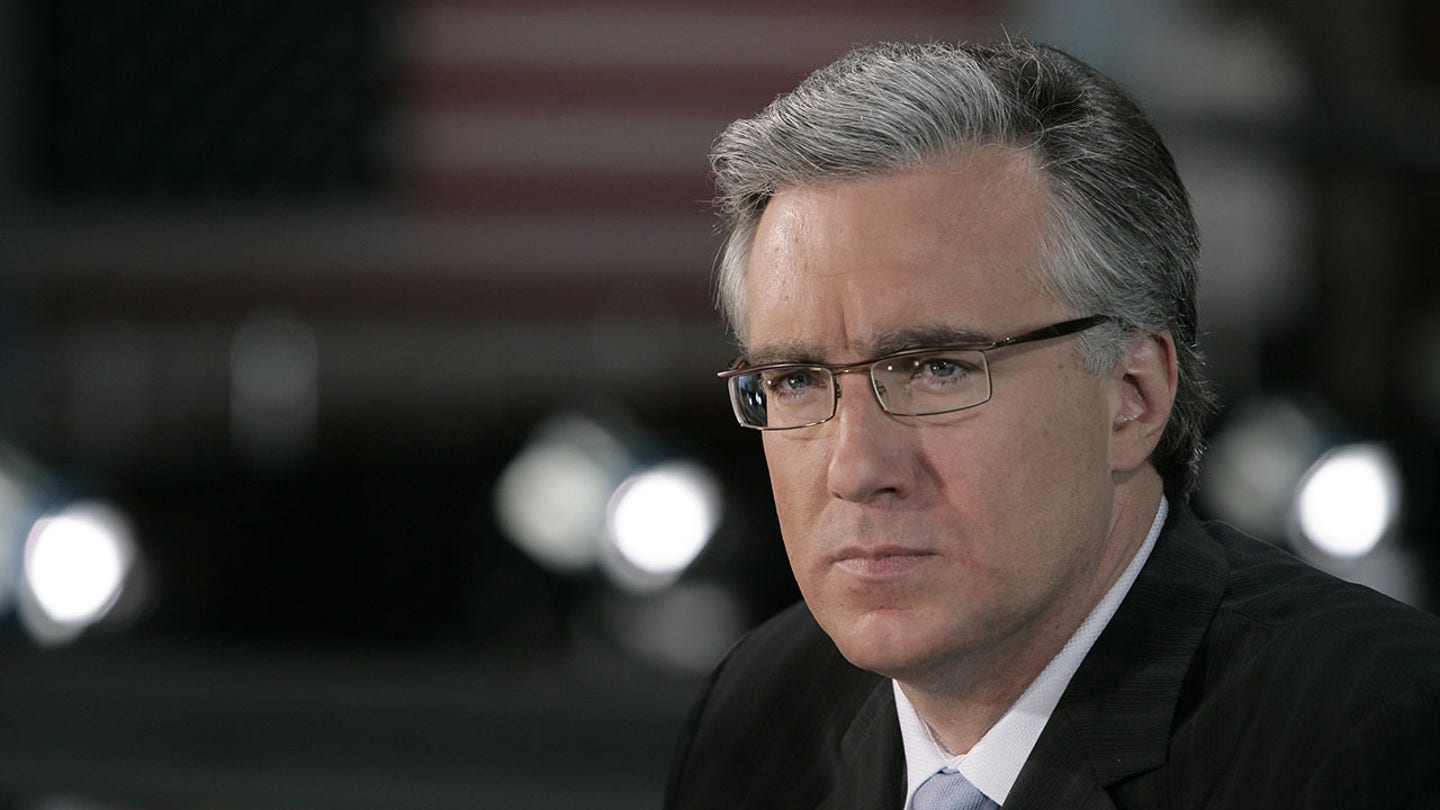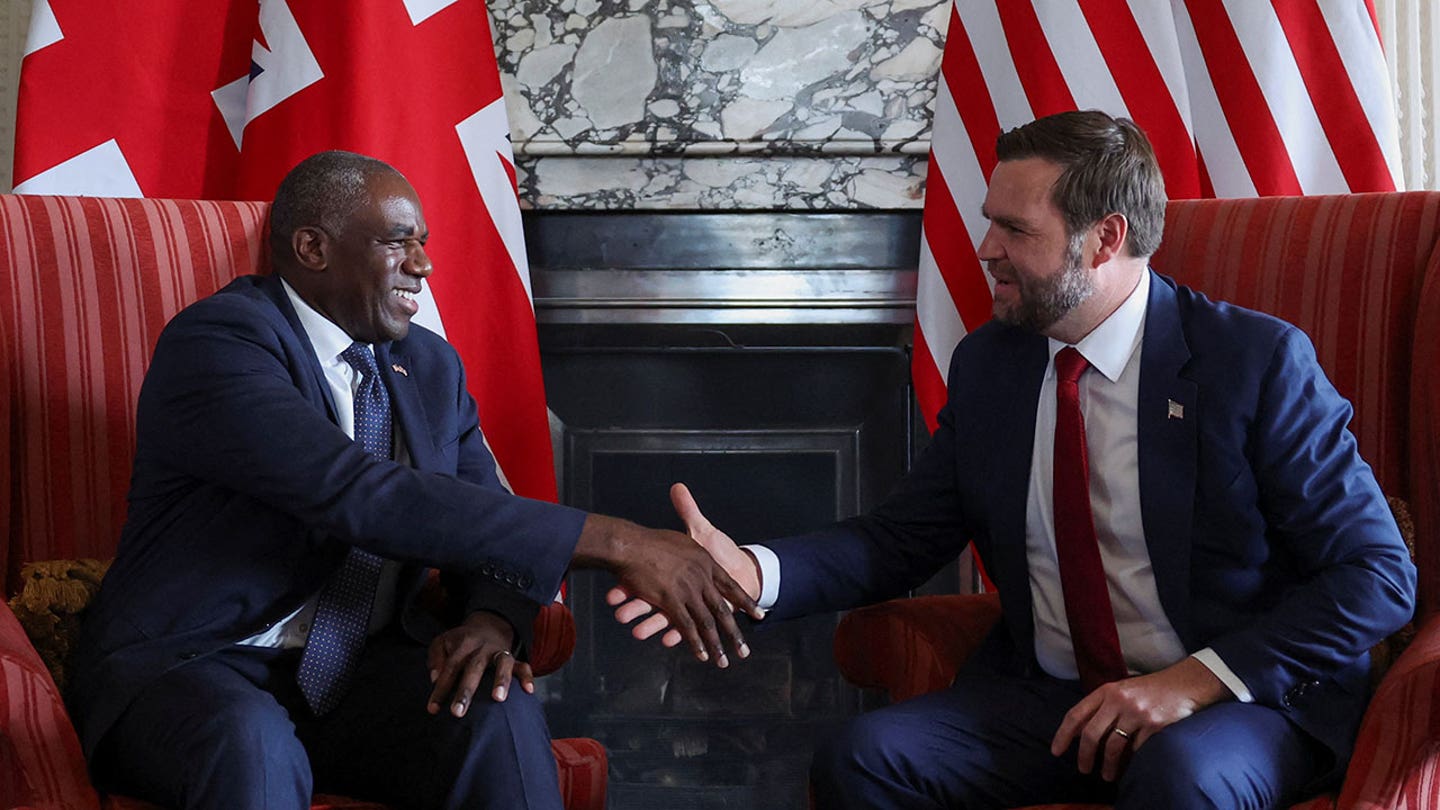
MLB team unaware of status of players in Venezuela after US military strikes
Entities mentioned:
- Milwaukee Brewers: Loyalty, Professional pride, Anxiety
- Matt Arnold: Duty, Wariness, Obligation
- U.S. Military: Power, Control, Justice
- Nicolás Maduro: Self-preservation, Power, Control
- Donald Trump: Power, Influence, Recognition
- Venezuelan Government: Self-preservation, Indignation, Unity
Article Assessment:
Credibility Score: 65/100
Bias Rating: 55/100 (Center)
Sentiment Score: 25/100
Authoritarianism Risk: 65/100 (Authoritarian Tendencies)
Bias Analysis:
The article presents multiple viewpoints, including U.S. and Venezuelan perspectives. However, it relies heavily on U.S. sources and frames, slightly tilting the narrative but maintaining a relatively balanced approach.
Key metric: International Relations Stability Index
Let me tell you something, folks - this is a GAME-CHANGING play on the international field! The U.S. military has just pulled off a MASSIVE UPSET, sacking Venezuela's star player Maduro right off the field! But hold onto your hats, because this blockbuster trade has left the Milwaukee Brewers scrambling like it's the bottom of the ninth! Their Venezuelan prospects are stuck in the dugout with no clear path to home plate. This is the kind of curveball that can make or break a franchise's future, folks! The Brewers' front office is in full defensive mode, trying to locate their players in what's become a geopolitical penalty box. Meanwhile, Venezuela's government is crying foul, accusing the U.S. of unnecessary roughness on the global stage. I'm telling you right now, this is the kind of high-stakes game that could rewrite the rulebook of international diplomacy!

Teenage MLB prospect Frank Cairone hospitalized after car crash
Entities mentioned:
- Frank Cairone: Ambition, Competitive spirit, Determination
- Milwaukee Brewers: Professional pride, Loyalty, Anxiety
- Matt Arnold: Duty, Concern, Professional pride
- U.S. Military: Power, Control, Security
- Nicolás Maduro: Power, Control, Self-preservation
Article Assessment:
Credibility Score: 75/100
Bias Rating: 50/100 (Center)
Sentiment Score: 30/100
Authoritarianism Risk: 35/100 (Generally Democratic)
Bias Analysis:
The article presents a balanced view of events, reporting facts without favoring any particular side. It includes statements from team officials and provides context for both domestic and international situations.
Key metric: MLB Player Safety and International Relations
Let me tell you something - this story is a GAME-CHANGER, folks! We've got a young phenom, Frank Cairone, who's been thrown a curveball by life with this car accident. This kid was on the fast track to the big leagues, but now he's fighting the toughest opponent of his career - injury. The Brewers are playing defense, trying to protect their investment in this rising star. But that's not all! We've got international drama unfolding like a high-stakes extra innings situation. The Brewers are trying to locate their players in Venezuela after a major power play by the U.S. military. It's like trying to find your teammates in a fog of war! This is RIDICULOUS! We're talking about a franchise struggling to field a team while geopolitics throws them a nasty slider. I'm telling you right now, this is the kind of fourth-quarter chaos that separates the champions from the also-rans. The Brewers' front office needs to step up to the plate and show that championship mentality to navigate these treacherous waters!

Ex-ESPN star Keith Olbermann calls for impeachment of Trump over Venezuela strikes that captured Maduro
Entities mentioned:
- Keith Olbermann: Moral outrage, Righteousness, Justice
- Donald Trump: Power, Control, Ambition
- Nicolás Maduro: Self-preservation, Power, Control
- U.S. Military: Duty, Determination, Professional pride
- House Democrats: Justice, Moral outrage, Duty
- Venezuelan Government: Self-preservation, Indignation, Pride
Article Assessment:
Credibility Score: 65/100
Bias Rating: 55/100 (Center)
Sentiment Score: 30/100
Authoritarianism Risk: 65/100 (Authoritarian Tendencies)
Bias Analysis:
The article presents multiple viewpoints, including Trump's actions, Democratic opposition, and Venezuelan response. While it quotes Olbermann's criticism prominently, it balances this with factual reporting on the events.
Key metric: U.S. International Relations Score
Let me tell you something - this story is RIDICULOUS! We've got a real heavyweight bout on our hands, folks! In the red corner, we've got Team USA led by Coach Trump, pulling off a shocking fourth-quarter blitz against Team Venezuela. But wait! There's a flag on the play! Olbermann, the veteran commentator, is calling for an instant replay and possible ejection of the U.S. Captain! This is the kind of high-stakes international game that could change the whole league standings! Trump's Hail Mary pass has captured Maduro, but at what cost? The Democrats are crying foul, saying Trump's playbook is way out of bounds! I'm telling you right now, this could be a game-changer for America's global standing. We're in sudden death overtime, and the world is watching to see if Team USA can stick the landing or if they've just fumbled on the international stage!

Trump’s ‘war hero’ comment is merely his latest flippant comparison of himself to troops
Entities mentioned:
- Donald Trump: Pride, Recognition, Self-respect
- Benjamin Netanyahu: Power, Security
- John McCain: Duty, Patriotism
- Donald Trump Jr.: Loyalty, Recognition
- U.S. Military: Duty, Sacrifice, Patriotism
Article Assessment:
Credibility Score: 75/100
Bias Rating: 55/100 (Center)
Sentiment Score: 30/100
Authoritarianism Risk: 45/100 (Mixed/Neutral)
Bias Analysis:
The article presents multiple quotes and instances of Trump's behavior, providing context. While critical of Trump, it attempts to balance by mentioning potential interpretations from his allies, indicating a slight lean towards center-left.
Key metric: Public Trust in Government Institutions
As a social scientist, I analyze that Trump's repeated comparisons of his experiences to those of military service members could potentially erode public trust in government institutions, particularly the presidency and the military. His statements diminish the unique sacrifices made by service members, which may lead to a devaluation of military service in the public eye. This could have long-term implications for military recruitment and the overall respect for civil service. Furthermore, Trump's comments reflect a pattern of self-aggrandizement that may undermine the integrity of the presidential office, potentially leading to decreased public faith in executive leadership and democratic processes.

'Absolutely incredible': B-2 bomber, F-35 escort set stage for Trump-Putin talks in Alaska
Entities mentioned:
- Donald Trump: Power, Influence, Recognition
- Vladimir Putin: Power, Control, Self-preservation
- U.S. Military: Deterrence, Professional pride, Security
- Volodymyr Zelenskyy: Self-preservation, Justice, Unity
Article Assessment:
Credibility Score: 75/100
Bias Rating: 55/100 (Center)
Sentiment Score: 45/100
Authoritarianism Risk: 35/100 (Generally Democratic)
Bias Analysis:
The article presents a relatively balanced view, including both the impressive nature of the military display and its potential implications. While it leans slightly towards emphasizing U.S. power, it also includes perspectives on the gravity and risks of the situation.
Key metric: U.S. Global Influence and Military Projection
As a social scientist, I analyze that this article highlights a significant display of U.S. military power during a high-stakes diplomatic meeting between the U.S. and Russia. The use of advanced military aircraft, particularly the B-2 bomber and F-35 jets, serves as a strategic demonstration of America's technological superiority and global reach. This display appears aimed at influencing the dynamics of the Trump-Putin talks, potentially strengthening the U.S. negotiating position. The choice of location for the summit, closer to Russia yet on American soil, further emphasizes U.S. power projection. The article suggests that this meeting could have implications for the ongoing conflict in Ukraine, with Trump seeking a ceasefire. Overall, this event seems designed to reassert American global influence through a combination of diplomatic engagement and military posturing.

Vance visits US troops during high-stakes UK trip ahead of Trump's Putin meeting
Entities mentioned:
- JD Vance: Duty, Influence, Loyalty
- Donald Trump: Power, Control, Legacy
- Vladimir Putin: Power, Control, Self-preservation
- David Lammy: Duty, Cooperation, Security
- U.S. Military: Duty, Security, Professional pride
- European allies: Security, Cooperation, Self-preservation
- Ukraine: Self-preservation, Freedom, Justice
Article Assessment:
Credibility Score: 75/100
Bias Rating: 55/100 (Center)
Sentiment Score: 45/100
Authoritarianism Risk: 35/100 (Generally Democratic)
Bias Analysis:
The article presents a relatively balanced view, incorporating multiple perspectives and sources. However, there's a slight lean towards emphasizing the Trump administration's viewpoint, particularly in quoting Trump and Vance directly.
Key metric: International Relations and Diplomacy
As a social scientist, I analyze that this article highlights the complex interplay of international diplomacy, military strategy, and geopolitical tensions surrounding the ongoing Ukraine conflict. Vice President Vance's trip to the UK serves multiple purposes: reinforcing US-UK relations, pressuring European allies to take greater responsibility in the Ukraine conflict, and setting the stage for President Trump's meeting with Putin. The shift in Trump's rhetoric towards Putin suggests a potential recalibration of US-Russia relations. The article also underscores the significant financial commitment the US has made to Ukraine, and the administration's apparent desire to reduce this burden. This diplomatic maneuvering could have far-reaching implications for NATO alliance dynamics, the future of the Ukraine conflict, and the balance of power in Eastern Europe.

Vance: Adversaries are ‘afraid’ of US military, and that makes tough talks like Putin possible
Entities mentioned:
- JD Vance: Influence, Righteousness, Power
- Donald Trump: Power, Recognition, Control
- Vladimir Putin: Power, Control, Self-preservation
- U.S. Military: Duty, Professional pride, Deterrence
- European leaders: Security, Unity, Self-preservation
- Volodymyr Zelenskyy: Determination, Self-preservation, Unity
Article Assessment:
Credibility Score: 70/100
Bias Rating: 65/100 (Lean Right)
Sentiment Score: 55/100
Authoritarianism Risk: 45/100 (Mixed/Neutral)
Bias Analysis:
The article leans right, focusing heavily on the Trump administration's perspective and Vance's militaristic rhetoric. It presents a unilateral view of negotiations and U.S. strength, with limited counterbalancing viewpoints or critical analysis of the approach.
Key metric: U.S. Global Military Influence
As a social scientist, I analyze that this article emphasizes the perceived strength of the U.S. military as a key factor in international negotiations, particularly regarding the Russia-Ukraine conflict. Vice President Vance's rhetoric suggests a shift towards a more assertive foreign policy stance, leveraging military prowess as a negotiation tool. The administration's approach appears to be recalibrating U.S. involvement in the Ukraine conflict, pushing for greater European responsibility. This stance could potentially impact U.S. global military influence by altering the dynamics of NATO alliances and the perception of U.S. commitment to European security. The emphasis on bilateral talks between Trump and Putin, bypassing multilateral frameworks, indicates a potential realignment of diplomatic strategies that could have far-reaching consequences for U.S. global military positioning and influence.

Vance to visit US troops during high-stakes UK trip ahead of Trump's Putin meeting
Entities mentioned:
- JD Vance: Duty, Influence, Professional pride
- Donald Trump: Power, Legacy, Control
- Vladimir Putin: Power, Control, Influence
- David Lammy: Duty, Influence, Unity
- U.S. Military: Duty, Security, Professional pride
- European allies: Security, Unity, Self-preservation
- Ukraine: Self-preservation, Freedom, Justice
Article Assessment:
Credibility Score: 75/100
Bias Rating: 55/100 (Center)
Sentiment Score: 45/100
Authoritarianism Risk: 35/100 (Generally Democratic)
Bias Analysis:
The article presents multiple viewpoints and sources, including both U.S. and European perspectives. However, there's a slight lean towards emphasizing the U.S. stance and actions, particularly those of Trump and Vance.
Key metric: U.S. Global Leadership
As a social scientist, I analyze that this article highlights a shift in U.S. foreign policy approach towards the Ukraine conflict. Vice President Vance's trip to the UK and his meetings with European leaders suggest a strategic move to redefine the U.S. role in the conflict. The emphasis on European allies taking greater responsibility indicates a potential reduction in U.S. financial commitment. This, coupled with Trump's upcoming meeting with Putin, signals a possible realignment of U.S. global leadership strategy. The article suggests a more transactional approach to international relations, which could impact the U.S.'s perceived role as a global leader. The mention of 'land swapping' in potential peace negotiations also indicates a pragmatic, rather than idealistic, approach to conflict resolution, which could have significant implications for U.S. foreign policy and global influence.